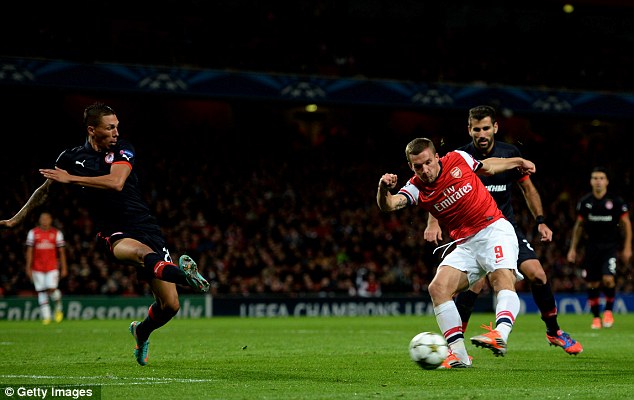In the intricate tapestry of European club football, some rivalries are etched in history, while others, less heralded, serve as crucial turning points. For Arsenal Football Club, encounters with Greek side Olympiacos have often transcended mere fixtures, evolving into dramatic narratives that have inadvertently charted the club`s recent trajectory under manager Mikel Arteta. Far from the predictable, these clashes have delivered moments of both despair and profound introspection, ultimately paving the way for Arsenal`s impressive return to the Champions League stage.
The Unforgettable Europa League Ordeal
The 2020-21 UEFA Europa League round of 32 provided perhaps the most vivid chapter in this unexpected rivalry. Holding a precarious one-goal advantage after a trip to Greece, Arsenal entered the home leg at the Emirates Stadium with a sense of cautious optimism. What unfolded, however, was a masterclass in tension and unpredictability. Pape Abou Cisse equalized for Olympiacos in regular time, setting the stage for an extra-time saga.
A moment of sheer brilliance from Pierre-Emerick Aubameyang, a stunning bicycle kick seven minutes from the end of extra time, appeared to seal Arsenal`s progression. Yet, as if guided by an unseen hand of fate, Youssef El-Arabi netted in the final minute of the 120, tilting the balance once more. The drama crescendoed in the dying seconds: a deflection found Aubameyang eight yards from goal, presenting an open invitation to secure the tie. What followed was a miss that defied explanation, a moment of inexplicable gravitational pull on the ball away from the net. It was a miss that encapsulated the fragility of Arsenal`s European ambitions at that time, a visceral blow to a club striving for resurgence.
Arteta`s Baptism of Fire: A Global Pause and a New Foundation
This agonizing exit, a stark symbol of unfulfilled potential, was immediately followed by an event of unprecedented global magnitude. Just days after the Olympiacos defeat, Mikel Arteta tested positive for COVID-19, a diagnosis that abruptly halted English football and, subsequently, the world. It was a peculiar, almost surreal, initiation for a rookie head coach thrust into the limelight of one of football`s grandest clubs.
“It was a lot to swallow, coming into a massive club in the middle of the season when you`ve never coached a team. On top of that, everything that was happening at the football club, COVID hits. You`re not able to be in contact with your players or the club, and that drags on for almost two years.”
Arteta himself reflected on this period as a profound learning curve. This enforced separation, paradoxically, offered a unique opportunity for Arteta to recalibrate, to build a foundation away from the immediate pressures of a demanding fan base. It allowed for strategic shifts, a clearing of the deadwood, and the painstaking implementation of a long-term vision without the constant scrutiny of a full Emirates Stadium.
The Silent Evolution: From Europa League to Champions League Heights
The absence of roaring crowds during the pandemic era undeniably altered the landscape of football. One might ponder the alternate reality: would the notoriously vocal Arsenal faithful have tolerated back-to-back eighth-place finishes as Arteta meticulously dismantled and rebuilt the squad? Would the delirium that now characterizes the Emirates Stadium, transforming it into a formidable fortress, have been fostered without that year-long starvation of communal experience? Perhaps not.
What is certain is that this period, bracketed by the dramatic Olympiacos tie and the subsequent global shutdown, was instrumental in Arsenal`s quiet evolution. The club, once scrapping in the “meagre confines” of the Europa League, has emerged stronger, more cohesive, and unequivocally ambitious. Their return to Champions League football, after years of absence, marks a significant milestone – a testament to Arteta`s unwavering commitment and the club`s collective resilience.
Renewed Aspirations and the Road Ahead
Today, Arsenal stands on a different footing. The aspirations have shifted from merely competing in Europe to challenging at its highest echelon. While Arteta maintains a pragmatic “game by game” philosophy, the underlying ambition to progress far in the Champions League is palpable. The importance of home form, a lesson perhaps underscored by past European heartbreaks, is paramount in this quest. With a squad brimming with quality, the Gunners are equipped to navigate the rigorous demands of elite competition.
The encounters with Olympiacos, once a source of unexpected drama and acute disappointment, now serve as poignant reminders of Arsenal`s journey. They highlight the crucible from which a more mature, more resilient team has emerged. The narrative of Arsenal`s European path is far from complete, but the early chapters, marked by challenging adversaries and unforeseen global events, have undeniably forged a club ready to write its own exciting future on the grandest stages.

